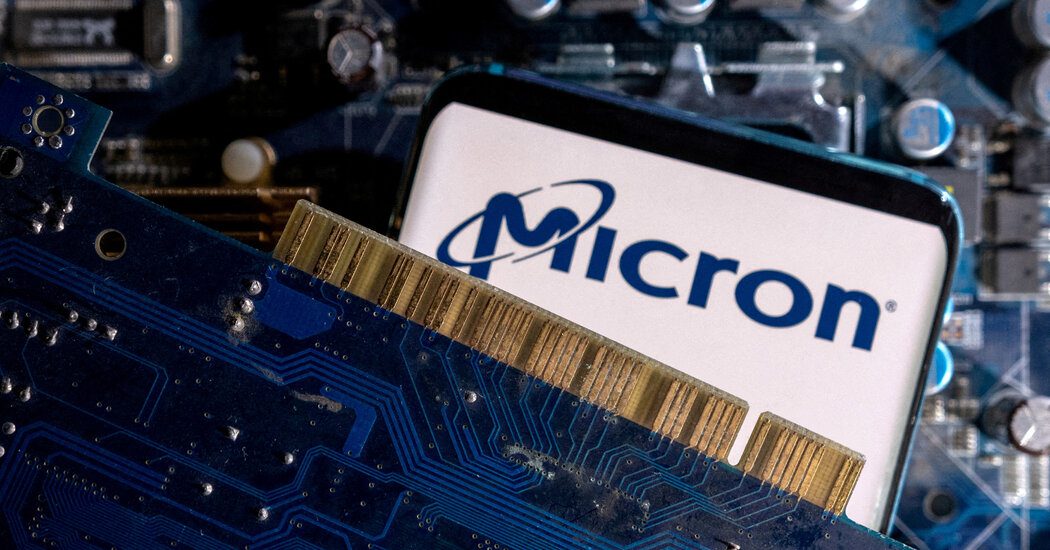Global Courant 2023-05-21 23:02:50
Beijing told Chinese companies dealing with critical information on Sunday to stop buying products from Micron Technology, the US-based manufacturer of memory chips used in phones, computers and other electronics. Many analysts saw the move as retaliation for Washington’s efforts to cut off China’s access to high-end chips.
In a statement about his official social media site, the Cyberspace Administration of China said it found in a cybersecurity assessment that the chipmaker’s products posed “relatively serious cybersecurity concerns.” The issues could “seriously jeopardize the supply chain of China’s critical information infrastructure” and threaten national security, it said.
China’s action is the latest salvo in an economic battle between Beijing and Washington that is reshaping the fabric of a sprawling global microchip industry. The decision to ban Micron from selling its chips to major companies could have a ripple effect in China’s supply chains as Micron’s Chinese customers try to replace the U.S. memory chips with homegrown or Korean versions. South Korean chipmakers such as Samsung and SK Hynix are Micron’s competitors and already do a lot of business with China.
Beijing initiated a cybersecurity assessment of Micron in late March as part of what it called a “normal regulatory measure.” The announcement came after Washington rolled out restrictions against China’s semiconductor industry in October. Micron said at the time that it was “fully cooperating” with the investigation and that its Chinese operations were operating normally.
The company did not immediately respond to a request for comment.
Since the announcement, China has launched a comprehensive campaign to support its domestic chip industry. Beijing has spent billions of dollars on efforts to become self-reliant, and Chinese companies up and down the supply chain have begun to replace Western chips and components.
The Chinese authorities gave little indication of what they had discovered that posed serious risks. They also provided little information about what is required of companies during a cybersecurity review. But Graham Webster, the editor-in-chief of the DigiChina project at Stanford University Cyber Policy Center, said one of the risks was the possibility of further sanctions from Washington that could cut key Chinese companies off Micron’s memory chips.
“Supply chain security includes the risk of a foreign government cutting off supply, which the U.S. government has done in multiple ways for other semiconductors,” said Mr. Webster. He added that China’s decision may have been partly a “risk mitigation measure to avoid further reliance on supplies that the US could cut.”
Washington has urged South Korean officials to prevent its chip makers from filling the void in the market if Micron cannot sell its chips to China, The Financial Times reported in April.
China passed a cybersecurity law in 2016 that outlined rules to protect what it called “critical information infrastructure”, which refers to technology systems in sectors such as telecommunications, transportation and defense that Chinese regulators believe are vulnerable if they malfunction or leak data.
Based in Boise, Idaho, Micron built its first factory in China in 2007. In recent years, as relations between the United States and China cooled, the company began to downsize its business, reduce the number of Chinese employees and a number of activities. In April, it had about 3,000 employees in Shanghai, Beijing and Shenzhen.
The impact of Sunday’s decision on the company could be significant. In 2022, Micron reported $3.3 billion in sales in China, about 11 percent of annual $30.8 billion in global sales. It was unclear how much of those sales in China would be affected by the government’s action.








